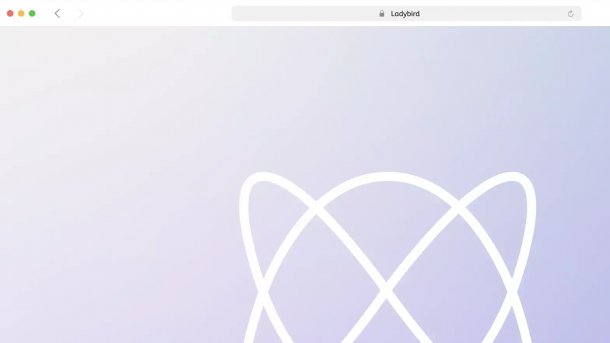Ladybird web browser takes off: One million US dollars from GitHub founder
Ladybird is driven by its own non-profit organization and a substantial donation. At the same time, the project makes it clear how independent it wants to be.

(Image: Ladybird)
The new browser has found a new home under the name Ladybird Browser Initiative: the non-profit organization will drive forward work on the project and find sponsors for development. Ladybird was previously part of SerenityOS, an operating system created under the direction of Andreas Kling. Kling is now also driving the project of a completely new web browser. Just a few days ago, Ladybird also split off from SerenityOS so that both projects can concentrate on their own goals again.
Enough money for development
At the same time, Ladybird has found another sponsor: Github founder Chris Wanstrath. He is not only one of those responsible for the new initiative, but is also contributing one million US dollars. Ladybird had already previously found a paying sponsor in Shopify. However, Kling emphasizes in the announcement that Ladybird will remain a free project in the future. He is not pursuing any commercial interests with the web browser. Accordingly, the funds will flow exclusively into the further development of Ladybird; the sponsors are explicitly not allowed to make any specifications. Kling therefore assumes that he will have to forego some funds - Google, for example, cannot automatically place its search engine as the default in Ladybird.
Unlike other independent browsers, Ladybird is not based on Chromium. Rather, it is a completely newly developed engine, independent of Google Chrome and Mozilla Firefox. The project is at a correspondingly early stage of development. However, Kling emphasizes that he and the other developers are already using the browser for some tasks, including interacting with GitHub, exchanging information via forums and general web browsing. Accordingly, the developers are focusing on their own needs in order to expand Ladybird's functions.
Videos by heise
Advertising unwanted
In an exchange with users on Hacker News, Kling states that the development of the engine is currently the main focus. He sees the complete independence from the advertising industry as an outstanding feature compared to Chrome and Firefox. Especially in comparison to Mozilla, Ladybird has a much narrower goal: the project wants to focus exclusively on a web browser that is intended for regular users - and from whose data the developers never want to profit. Consequently, Kling expects the financial side of the project to be simpler. Mozilla has repeatedly tried its hand at new projects in recent years, which have not always been successful - and is also more or less dependent on advertising money from Google.
Kling takes a correspondingly liberal view of the issue of ad blockers. Ladybird will definitely have such a function. The web is simply not pleasant to use without such a feature, says Kling. Kling also comments on the size of the project: Ladybird currently has three full-time developers, with three more to be added next month. He emphasizes that it is explicitly more than a hobby project. He currently considers its financing to be secured for 1.5 years.
Desktop comes first
If you want to try Ladybird despite its pre-alpha status, you have to use one of the desktop ports. The official development targets are currently Linux and macOS; Windows users must use WSL 2. The browser is still in its former home SerenityOS. However, Kling expects that its developers will not be able to adopt all the changes in future: One of the fundamental changes in the fork was that Ladybird can now include code from third-party projects, but SerenityOS still prohibits this. Ladybird's old Android port currently lacks a maintainer. The project does not want to devote itself to versions for mobile devices until the browser for the desktop is significantly more advanced.
(fo)